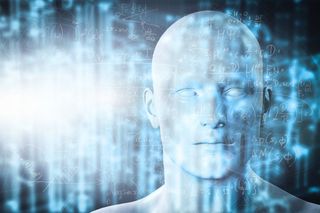Why every business needs an AI strategy
How AI is transforming different industries

We are currently living in a period unprecedented in both our personal and professional lives. The COVID-19 pandemic is having an era-defining impact on how businesses operate on a fundamental level. To keep up with the changes within their respective industries and remain relevant, businesses are having to re-evaluate where they invest. Technology like artificial intelligence (AI), which helps businesses remain nimble in the face of change, is crucial in helping to manage this shift.
AI isn’t a new tool, especially to businesses who had embarked on digital transformation journeys prior to the pandemic. However, one of AI’s great strengths is helping solve complex problems, and the pandemic has thrown up a whole lot of particularly challenging problems on a daily basis. As a result, we’re seeing more and more organizations turning to advanced computer systems to help them navigate the current climate, from financial services, to manufacturing, logistics, government services and so on.
Data scientists, data analytics tools, citizen scientists and global networking IT infrastructure can all help businesses to tame vast amounts of data. This data can be used to help make policy decisions, restock our grocery stores, prepare for downstream effects of supply chain disruptions and so many other curveballs that COVID-19 has thrown our way.
Here are some ways in which AI is transforming different industries:
Finance
The banking industry has been no stranger to AI in recent years, offering customers a better, more personalized banking experience through digitalization. However, during the pandemic, the industry has also turned to AI to speed up backend functions that benefit the customer, but aren’t seen by them directly, like helping to process documents more quickly.
According to a recent McKinsey survey, 88% of finance and insurance executives have reported increased implementation of automation and AI since the outbreak. This hasn’t just been limited to improving backend functions; it has also enabled a rise in the use of contactless credit cards and cashless money transfer systems, and for more and more transactions to take place online.
Manufacturing
In the manufacturing industry, technology is changing everything from design to production. PwC’s Global CEO Survey, looking at industrial manufacturing trends of 2020, showed that 74% of CEOs report operational efficiencies as the main driver for revenue growth. As a result, attention is being placed on AI, machine learning and automation, as the promise of process automation, remote monitoring and extended capabilities is too great to ignore.
Are you a pro? Subscribe to our newsletter
Sign up to the TechRadar Pro newsletter to get all the top news, opinion, features and guidance your business needs to succeed!
AI can also help mitigate problems with last-mile delivery, the last stretch of the delivery process to end consumers, through the improved prediction of recipients’ availability and understanding of consumers’ delivery preferences. Last-mile delivery issues account for more than half of all shipping costs, and with many people relying on delivery for most common household items, supply chains are currently facing an uphill battle.
Logistics
Logistics is also on its way to becoming an AI-driven industry, with machine learning increasingly used across the whole supply chain. From weighing a package and measuring its shape and size, to measuring facility capacity across the supply network, AI can help make operations adjustments, minimize forecast uncertainty, and assist drivers with loading delivery vehicles efficiently.
The pandemic has put a major strain on the supply chain. More people are depending on e-commerce to purchase items that they may have otherwise bought in-person, putting more pressure on package delivery services. The ability to optimize routes using real-time weather and traffic data, as well as to deploy machine learning models to predict where new pickups are likely to come from, minimizes operating expenses while maximizing services.
Retail
Elsewhere in the supply chain, retailers are also benefiting from AI. For example, warehouse robotics solutions are often enhanced with machine learning capabilities to enable them to work cooperatively or otherwise speed up the picking, packing and delivery processes.
COVID-19 has meant that many more people are choosing to order their groceries online for a contactless experience–and through using intelligent automation, retailers can better handle this surge in demand, allowing them to better serve their customers.
Government services
Public sector services is another area that has been disproportionately affected by COVID-19. Organizations like unemployment services have experienced unprecedented call volumes as a result of unemployment claims related to the COVID-19 pandemic. For instance, The Oklahoma Employment Security Commission has been receiving over 60,000 calls on a daily basis.
Services like this can benefit from integrating AI to aid with their business phone systems for call diversion, reduce wait times, and provide an additional channel for addressing unemployment related questions. Conversational AI can also be utilized to respond to complex needs that have never been seen before, such as inquiries about health, employment, and insurance.
Looking forward
Every day, we are seeing more and more businesses turn to AI to meet their needs. The right use for you and your business will depend on what you are trying to achieve. However, AI and machine learning should supplement people’s abilities and assist them. There is no doubt that jobs will continue to shift throughout this period, as they have always adapted to change. However, many jobs will be complemented by these technologies, and entirely new jobs will be introduced too.
AI has already stabilized businesses with the emergence of sophisticated tools, best practices, and a rapidly growing community of builders. Now, more than ever, we will see AI transform businesses in almost every sector.
- Andrew Moore, VP and General Manager, AI & Industry Solutions, Google Cloud.
- We've featured the best cloud storage services.
Andrew Moore, VP and General Manager, AI & Industry Solutions, Google Cloud.
Most Popular
